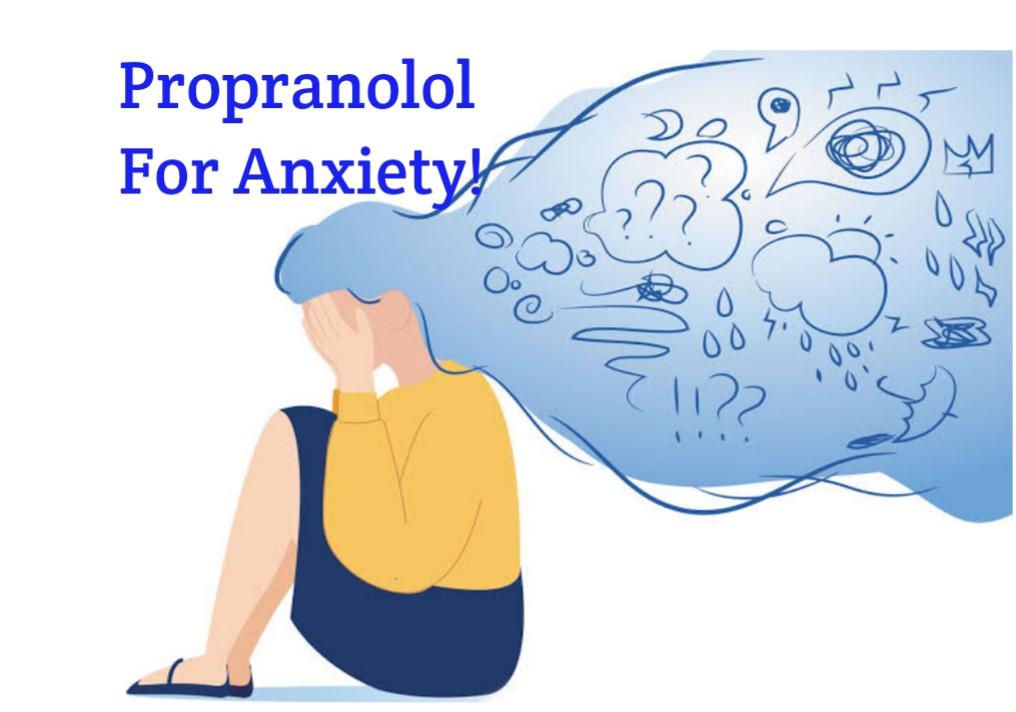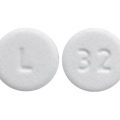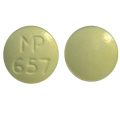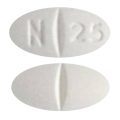Anxiety is your body’s natural response to stress. It’s a feeling of fear or apprehension about what’s to come. The first day of school, going to a job interview, or giving a speech may cause most people to feel fearful and nervous. It’s normal to feel anxious about moving to a new place, starting a new job, or taking a test. This type of anxiety is unpleasant, but it may motivate you to work harder and to do a better job. Ordinary anxiety is a feeling that comes and goes, but does not interfere with your everyday life.
But if your feelings of anxiety are extreme, last for longer than six months, and are interfering with your life, you may have an anxiety disorder. In the case of an anxiety disorder, the feeling of fear may be with you all the time. It is intense and sometimes debilitating. This type of anxiety may cause you to stop doing things you enjoy. In extreme cases, it may prevent you from entering an elevator, crossing the street, or even leaving your home. If left untreated, the anxiety will keep getting worse. Anxiety disorders are the most common form of emotional disorder and can affect anyone at any age. According to the American Psychiatric Association, women are more likely than men to be diagnosed with an anxiety disorder.
What is Propranolol used for?
Propranolol is a beta blocker used to treat high blood pressure, irregular heartbeats, shaking (tremors), and other conditions. It is used after a heart attack to improve the chance of survival. It is also used to prevent migraine headaches and chest pain (angina). Lowering high blood pressure helps prevent strokes, heart attacks, and kidney problems. Preventing chest pain can help improve your ability to exercise. This drug works by blocking the action of certain natural chemicals in your body (such as epinephrine) that affect the heart and blood vessels. This effect reduces heart rate, blood pressure, and strain on the heart.
Does Propranolol Work for Anxiety?
Propranolol was first studied as a general anxiolytic (anti-panic or antianxiety agent) in the treatment of anxiety disorders, there is evidence to suggests that after a fear memory is recollected, and followed specifically by a prediction error (a discrepancy between actual and expected negative events), propranolol selectively blocks protein synthesis, thereby prohibiting the ‘reconsolidation’ of the fear memory while sparing declarative memory. However, a systematic review published in the Journal of Psychopharmacology concluded that the quality of evidence for the efficacy of propranolol is insufficient to support the routine use of propranolol in the treatment of any of the anxiety disorders.
How Much Propranolol Should You Take for Anxiety?
Propranolol comes in 10mg, 40mg, 80mg and 160mg tablets. The standard propranolol dosage for treating performance or social anxiety ranges from 10 to 80mg, depending on the severity of your symptoms and response to the medication. As with other medications, there’s no “perfect” dose of propranolol for everyone. Depending on your symptoms, bodyweight and response to the medication, your doctor might recommend a mild or higher propranolol dosage before anxiety-inducing events.
How Quickly Does Propranolol Work For Anxiety?
Usually it takes around 30-60 minutes for the effects of propranolol to become noticeable. Most people who take propranolol to treat performance anxiety use the medication about one hour before any stress-inducing events.
How Long Does Propranolol Last?
Propranolol has a half-life of eight to 10 hours, meaning about half of the dose will still be active in your body after eight to 10 hours. However, the noticeable effects of the drug last for about 12 hours—slightly longer than propranolol’s half-life.
How Does Propranolol Make You Feel?
Propranolol blocks the physical effects of anxiety, meaning you won’t experience an increased heart rate, sweating and shakiness when you feel nervous. By blocking the physical symptoms of anxiety, propranolol can help you feel calmer, less nervous and more composed.
Does Propranolol Affect Mental Function?
Propranolol primarily affects your body’s physical response to stress, with few major effects on your cognitive function. A 2000 study found that people who used propranolol performed almost exactly the same on 11 tests of cognitive function after three or 12 months of use. It’s worth noting that this study was carried out on people who received a significant propranolol dosage daily (80 to 400mg every day) to treat hypertension, instead of the smaller, as-needed dose used to treat social anxiety and performance anxiety.
Is it Okay to Take Propranolol With Food?
Propranolol can be taken with food or on an empty stomach. Food does not seem to have a significant effect on the body’s absorption of propranolol, meaning you shouldn’t notice any difference in effectiveness if you take this medication after a meal.
Can Propranolol be Taken as Needed?
Yes. When used for performance anxiety and social anxiety, propranolol can be taken only when it’s needed. Many people use propranolol as needed before public speaking events, meetings or other stressful, anxiety-inducing situations. If you’re prescribed propranolol for a heart condition, follow your doctor’s exact instructions and only use propranolol as prescribed.
What are Propranolol Side Effects?
Propranolol has several potential side effects. Most propranolol side effects are minor, with fatigue, a reduced heart rate and difficulty falling asleep being the most common side effects at a normal dose. In rare cases, propranolol can cause more serious side effects. Our Propranolol 101 guide lists all of the common and uncommon side effects of this medication, with information on what to do if you experience propranolol side effects.
Is Propranolol Safe?
Used according to your doctor’s instructions, propranolol is a very safe medication. It’s been in use since the 1960s and is prescribed to millions of people in the United States alone, with a long record of safety. Like all medications, propranolol needs to be used responsibly. If you use propranolol at doses above those recommended by your doctor or more frequently than prescribed, you may have an increased risk of experiencing side effects.
Does Propranolol Cause Weight Gain?
Propranolol can cause weight gain, although it’s more likely to cause extra fluid retention than an increase in body fat. Any weight gained from propranolol and other beta blockers is usually temporary, with most people’s weight stabilizing after the first few months of treatment.
Can Propranolol Make it Harder to Fall Asleep?
A small percentage of people who use propranolol for heart conditions and anxiety experience difficulty falling—and staying—asleep. This is often a temporary side effect that goes away after a few weeks or months of using propranolol. Sleep supplements such as melatonin can reduce the negative effects of propranolol on your ability to sleep and make it easier to maintain normal, healthy sleep habits.
How Much Does Propranolol Lower Blood Pressure?
Propranolol can cause a significant decrease in blood pressure, especially when used at a high dose. In a 1983 study, researchers found that an 80mg daily dose of propranolol caused an average drop in systolic blood pressure of 11 +/- 4 mm Hg, while a 160mg daily dose caused a fall of 16 +/- 4 mm Hg. Higher doses of propranolol did not cause any further measurable decrease.
Does Propranolol Have any Effects on Exercise?
Because propranolol can reduce your heart rate, it can have several effects on your ability to exercise. After you take propranolol, you might feel fatigued and exhausted more easily after intense exercise. If you do frequent cardiovascular exercise, it’s important to account for propranolol’s effect on your heart rate if you use a heart rate monitor to track your workout intensity.
Is Propranolol Addictive?
Propranolol is not a physically addictive, habit-forming medication. However, it is possible to become accustomed to the feeling of relaxation propranolol provides, especially if you often experience performance or social anxiety.
Is Propranolol a Benzodiazepine?
No. Although propranolol is used to treat certain types of anxiety, it is not a benzodiazepine like alprazolam (Xanax) or diazepam (Valium). Propranolol belongs to a class of medications called beta blockers.
Is it Safe to Drink Alcohol While Taking Propranolol?
You should not drink alcohol while taking propranolol. Alcohol can interact with propranolol and cause you to feel excessively drowsy and fatigued. It’s also possible for alcohol and propranolol to reduce your heart rate and blood pressure, causing potentially serious side effects.
Is Propranolol a Selective or Nonselective Beta Blocker?
Propranolol is a nonselective beta blocker, meaning it can block the effects of stress hormones on beta-1, beta-2 and beta-3 receptors. Because of this, the effects of propranolol can occur in tissue outside the heart, such as the airways.
Is it Safe for People With Diabetes to Use Propranolol?
Propranolol is not recommended for people with diabetes. As a nonselective beta blocker, it’s possible for propranolol to cause hypoglycemia. If you have diabetes and anxiety, you should speak to your doctor about safe treatment options before considering any medications.
Is it Safe to Use Propranolol for Public Speaking?
Yes. Many people experience performance anxiety before giving speeches or performing in front of others. Propranolol is widely used as a performance anxiety treatment by people who perform in public, from event presenters to musicians.
Can Propranolol Interact With Other Medications?
Propranolol can interact with a range of medications, including more than 70 major interactions with other drugs. If you use other prescription medications, it’s important to let your doctor know before considering propranolol or any other beta blockers.
What Brand Names is Propranolol Sold Under?
Today, propranolol is mostly sold as a generic without a specific brand name. It’s also been sold under the brand names Inderal (the first name for propranolol, by ICI Pharmaceuticals), Deralin, Inderalici, Dociton, Avlocardyl, InnoPran XL, Anaprilin, Sumial and others.
What Forms of Propranolol are Available?
Propranolol is available in four different forms. The most common is a tablet, which contains 10 to 160mg of propranolol. Propranolol is also available as an extended-release capsule, which is designed primarily for treating heart conditions. There’s also an oral liquid version of propranolol that provides the same effects as the common, tablet-based form, as well as a propranolol IV injection that’s mainly used in hospitals and other medical settings.





